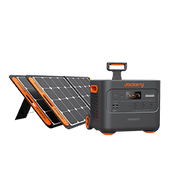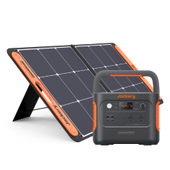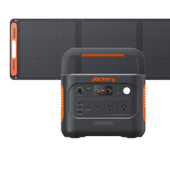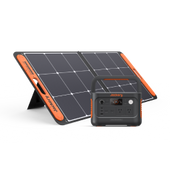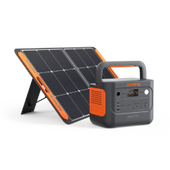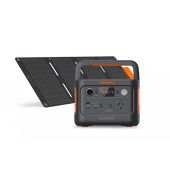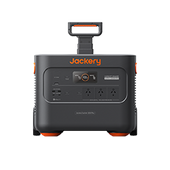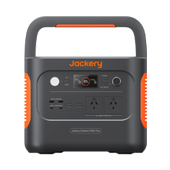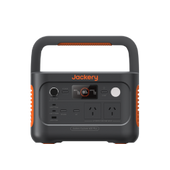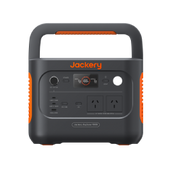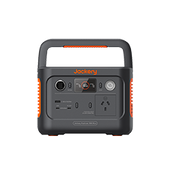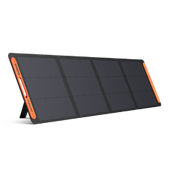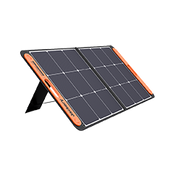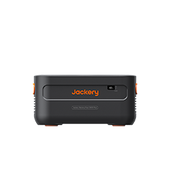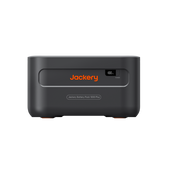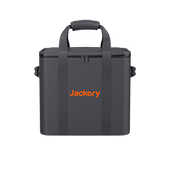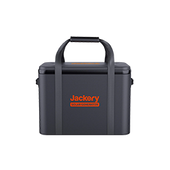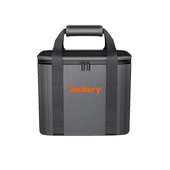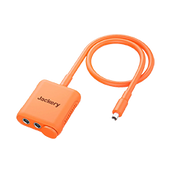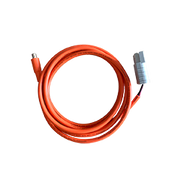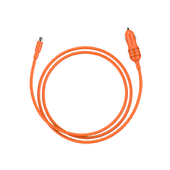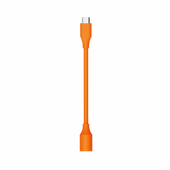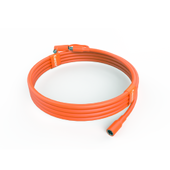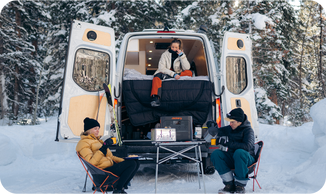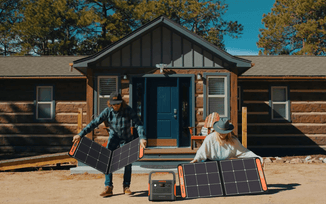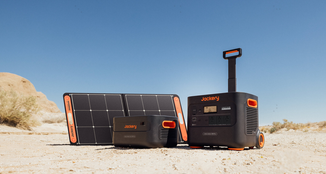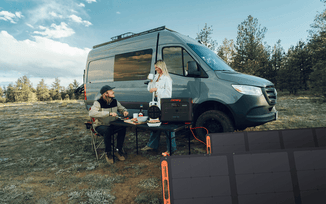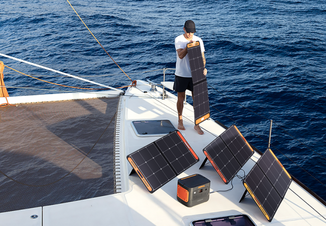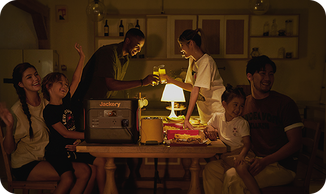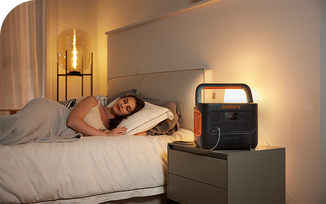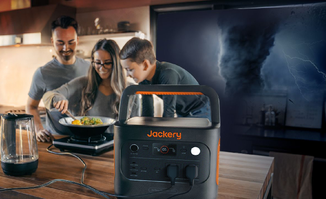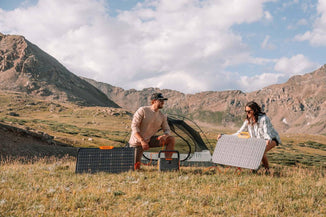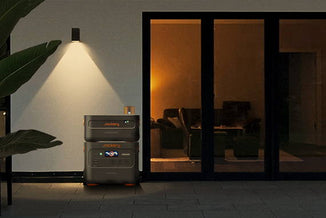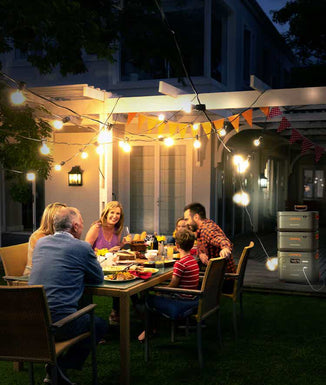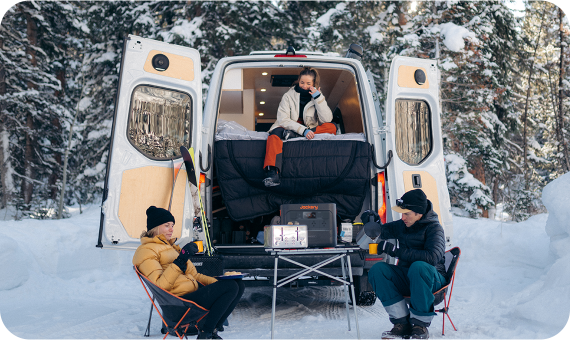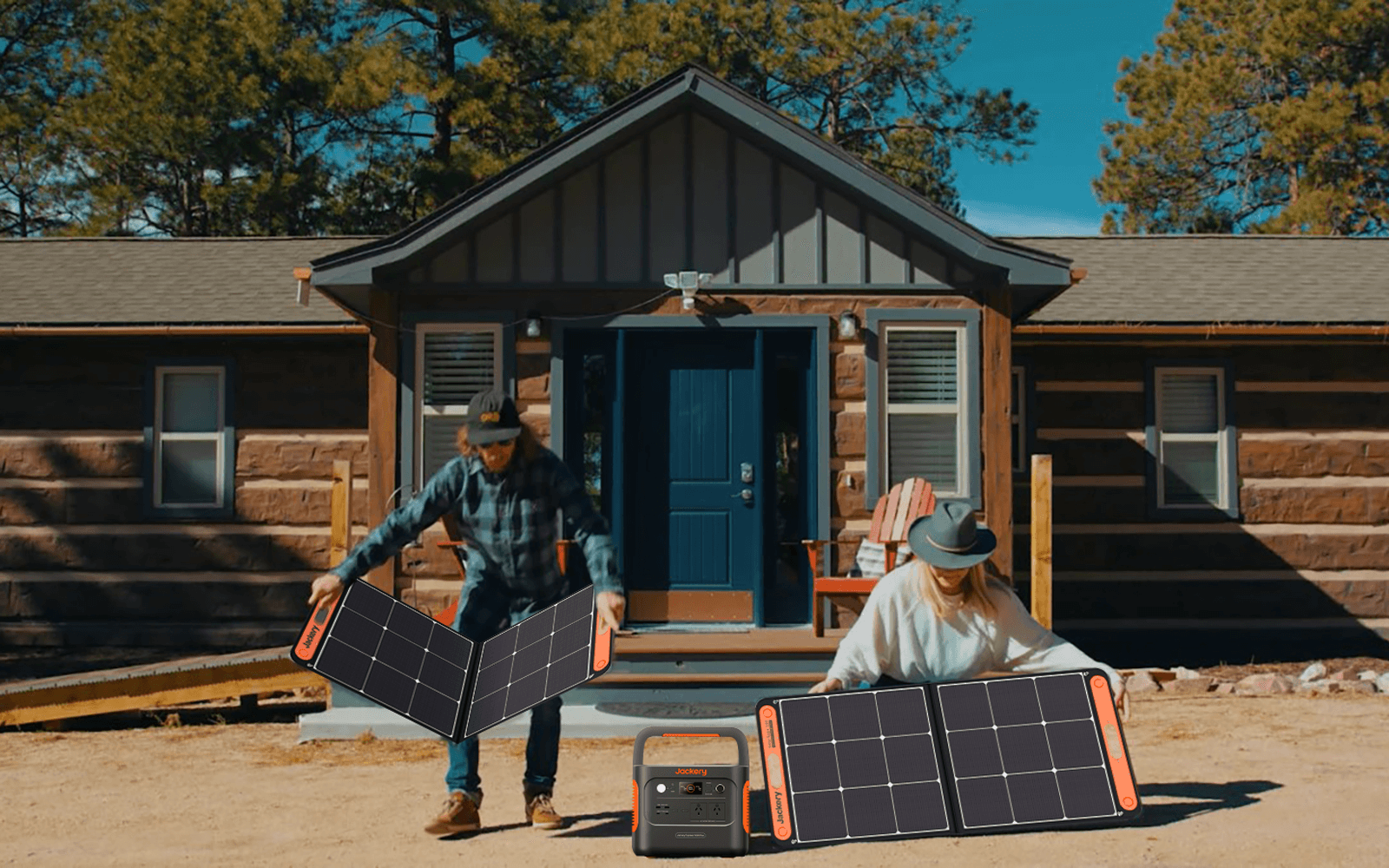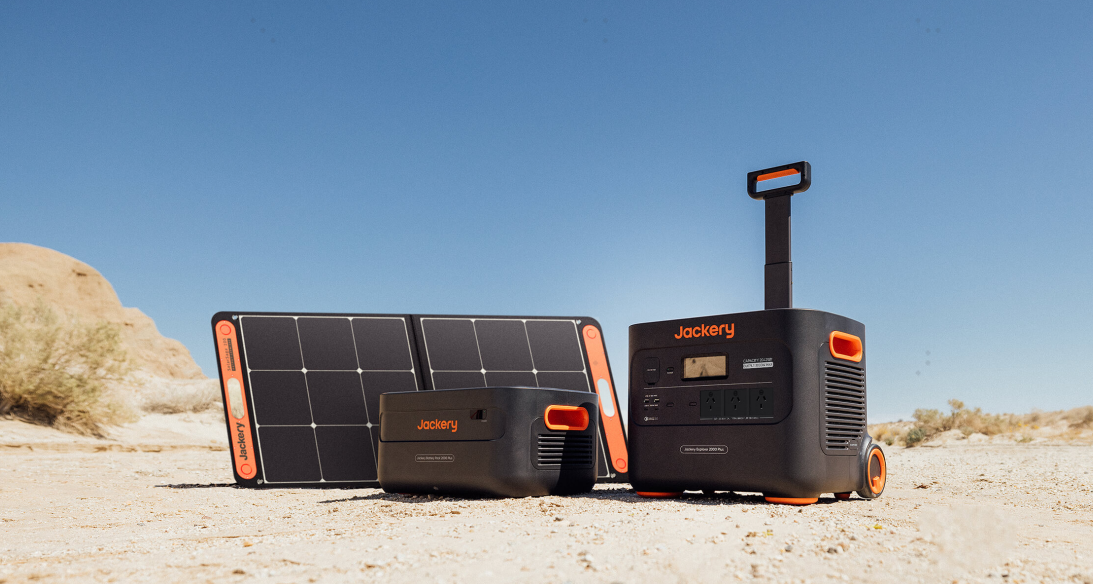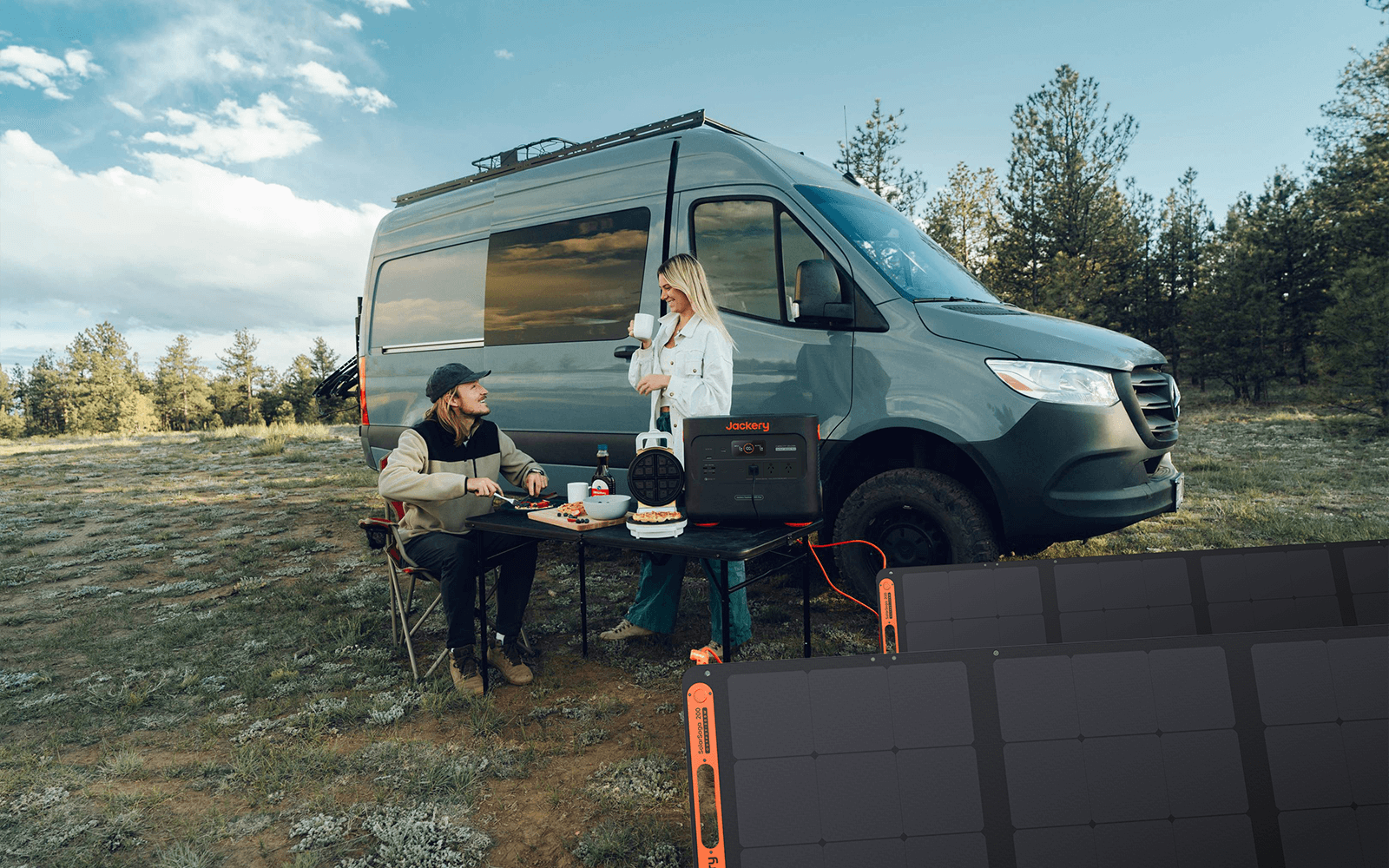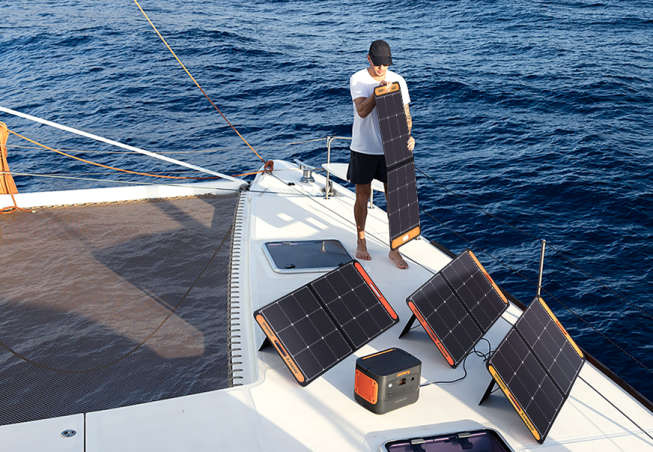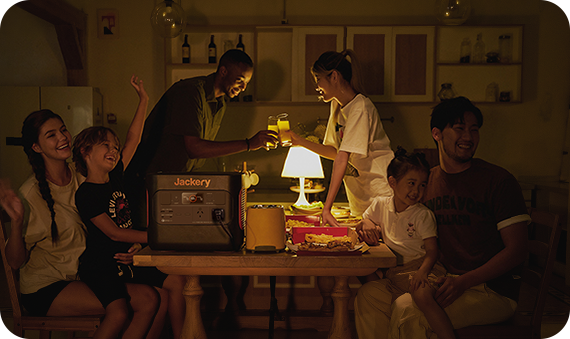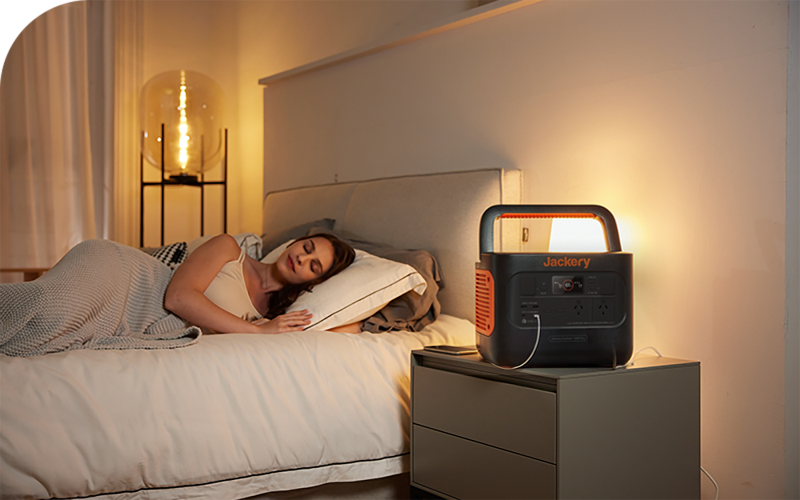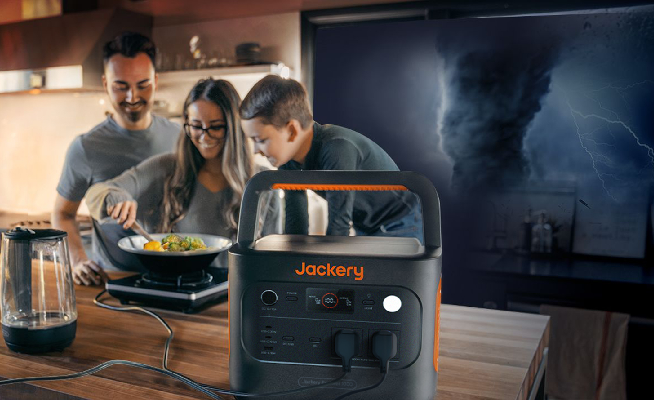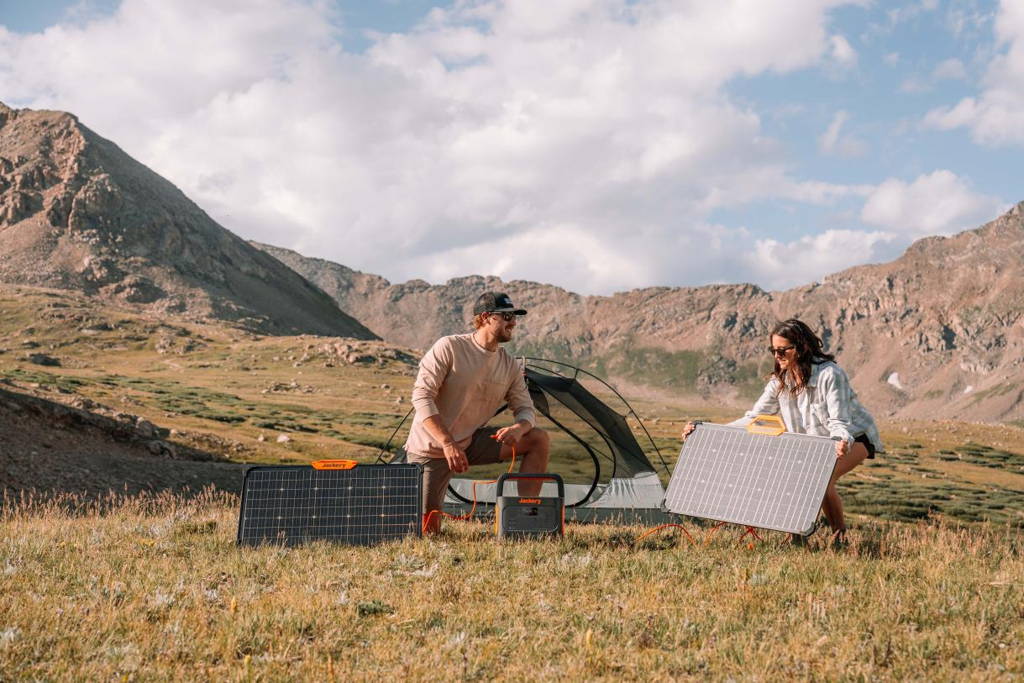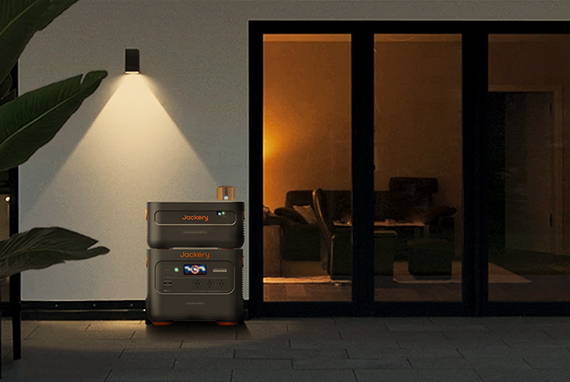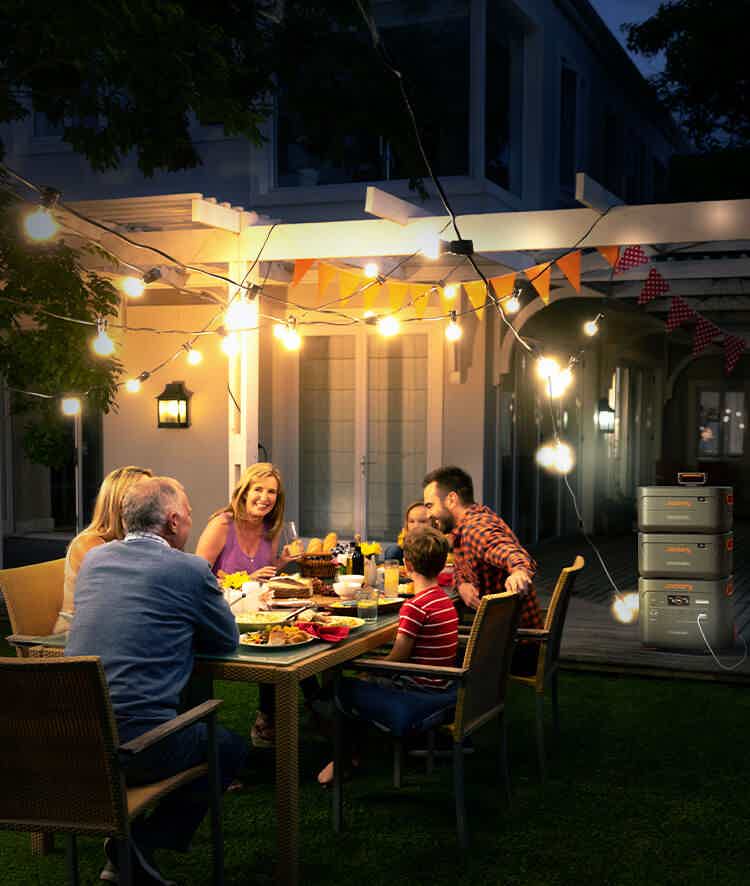The Best Folding Solar Panels in Australia [Ultimate Guide]
The Best Folding Solar Panels in Australia [Ultimate Guide]
Folding or foldable solar panels are portable, lightweight, and durable. Individual solar modules are attached to a weather-resistant fabric that folds and unfolds rapidly for storage and use.

Solar technology that can be folded can provide numerous benefits. However, the most crucial use of folding solar panels, and why most people purchase them, is their remarkable return on investment and the savings they enable you to earn.
Unrivalled sturdiness enables use in severe environments and the continued operation of a damaged panel. These compact panels are ideal accessories for powering various electronic devices and are easily transportable for most outdoor enthusiasts. Jackery Solar Panels are folding and secured for portability. With increased conversion efficacy, solar energy can be utilized effectively.

Dimensions (Unfold)
1220 x 535 x 5 mm
Dimensions (Folded)
610 x 535 x 35 mm
Weight
4.69 kg

Dimensions (Unfold)
906 x 528 x 27 mm
Dimensions (Folded)
906 x 528 x 27 mm
Weight
5.1 kg
This detailed folding solar panel guide illustrates what it is, how it works, the best picks, and a buying guide. We highly recommend Jackery SolarSaga 100W and SolarSaga 80W solar panels, which can be paired with Portable Power Stations to maximize solar energy usage.
Key Takeaways:
A folding solar panel is a portable and efficient method of capturing solar energy that can be used at home or while traveling.
Folding solar panels contain cells of semiconducting materials, typically silicon, that can convert sunlight into electricity.
There are rigid, flexible, portable, and folding solar panels on the Australian market, and folding solar panels are the most portable for outdoor adventures.
Jackery Folding Solar Panels are lightweight and compact, making them simple to transport. You can choose SolarSaga 100W and 80W for outdoor uses.
When buying a folding solar panel, you need to consider its solar panel size, conversion efficiency, wattage, and weather rating.
You need to check the local climate condition in Australia when using a folding solar panel.
What Is A Folding Solar Panel in Australia?
Folding solar panels are a portable and efficient method of capturing solar energy that can be used at home or while traveling. They can provide the energy necessary to power your devices, appliances, and more when you have limited or no access to an alternative power source.
Unlike solar panels installed on your home's roof, this solar panel is foldable for easy transportation, installation, and storage.
Solar panels that fold up keep you connected, power your outdoor activities, and allow you to get more out of your excursions. Folding solar panels are intended for occasional outdoor use rather than permanent installation.
If panels are drenched, brush them dry and allow them to air dry before folding. Allow the board to dry completely before folding and storing it to prevent damage. Always keep the foldable solar panels in a cold and dry location.

How Does A Folding Solar Panel Work?
Solar panels are indispensable for outdoor enthusiasts who want to generate electricity using the sun's energy while savoring the great outdoors. Understanding how folding solar panels function can help you select the most appropriate folding solar panels for your requirements.
- Solar Cell: These cells are in charge of converting solar energy into electrical energy. One stratum is positively charged (p-type), and the other is negatively charged (n-type).
- Inverter: Since solar panels generate DC, an inverter is required to transform the electricity into AC.
- Battery A battery enables the storage of excess electricity generated during the day for use at night or during overcast periods when solar panels produce less energy.
How Do Jackery Folding Solar Panels Work?

The ETEF surface design permits the use of these foldable solar panels in a variety of environments. Folding solar panels by Jackery are lightweight and compact, making them simple to transport. The aesthetically pleasing panels and ergonomically designed handles can be installed in just one minute and are ideal for outdoor use.
The monocrystalline solar cells utilized by Jackery Solar Panels are more durable and have a higher absorption rate. These foldable solar panels can convert sunlight into electricity and attach to Jackery Portable Power Stations with solar connectors to capture additional energy. In addition, the power plants store electricity for subsequent use.
Folding Solar Panel VS. Other Solar Panels
There is no one-size-fits-all solution for choosing the type of solar panels for your expedition. On the Australian market, there are rigid, flexible, portable, and foldable solar panels; if you're curious about their differences and applications, continue reading.
With solar panel technology becoming more efficient each year, there are more opportunities to depart from conventional rectangular glass panels. These inventive applications inspire new ideas regarding where solar panels can be installed and what they can power.
Flexible solar panels are a new type of panel that can be bent to an angle of approximately 30 degrees, whereas fixed solar panels are heavier and more unyielding. Transportable and folding solar panels prioritize portability.
Rigid Solar Panel
Power Output: High
Efficiency: High
Durability: High
Portability: Low
Installation: High
Cost: High
Power Output: Moderate to low
Efficiency: Moderate to low
Durability: Moderate to low
Portability: High to moderate
Installation: High to moderate
Cost: Moderate to low
Portable Solar Panel
Power Output: High to moderate
Efficiency: High to moderate
Durability: Moderate
Portability: High
Installation: Low
Cost: Moderate to low
Folding Solar Panel
Power Output: High to moderate
Efficiency: High to moderate
Durability: Moderate
Portability: High
Installation: Low
Cost: Moderate to low
Rigid Solar Panel
Rigid solar panels have been the industry standard for decades, can withstand all types of weather, and can be installed to optimize the solar angle throughout the year. They are tried and true, so no one will judge you negatively if you choose this path.
When people think of solar panels, the rigid panel design is likely what comes to mind. These can be found on southern-facing rooftops or enormous solar farm installations. They are typically installed in super-sturdy brackets that can be tilted to maximize solar gain throughout the year and are the very definition of durability.
Pros of Rigid Solar Panels:
- Longer Lifespan: The rigid panels' glass casing and aluminum frame protect their solar cells from damage, dents, and weather deterioration. A corrosion-resistant aluminum frame protects it against outdoor elements such as rain, snow, and wind.
- High Efficiency: Maximizing your solar energy production is crucial for meeting your energy requirements. Especially during the winter, it can be challenging to obtain sufficient sunlight to power your appliances. You are attaching rigid panels to the roof atop robust mounting brackets that can be angled to maximize solar gain.
- High Quality: Installing a bracket system secures your solar array, preventing it from being blown away by strong winds. Your installation team will position the display to capture the maximum sunlight, allowing you to enjoy lower utility bills and clean, renewable energy.
Cons of Rigid Solar Panels:
- Professional Installation: Permanent panel systems are more expensive and time-consuming than flexible ones. Typically, rigid solar panels require a racking system, necessitating drilling the mounting racks into the surface.
- Pricey: Typically, rigid panels are more expensive than flexible or portable solar panels. The glass enclosure and aluminum frame increase the material's cost.
- Heavy: A 100W rigid panel weighs approximately 20 pounds, making it difficult to transport, particularly for outdoor camping and hiking.
Flexible Solar Panel
Pros of Flexible Solar Panels:
- Light: Flexible panels are approximately 20% lighter than their rigid counterparts, allowing them to be attached to structures that could not usually sustain the weight of a wooden frame. Most flexible panels weigh between 4 and 5 pounds, whereas traditional panels weigh between 30 and 50 pounds.
- Flexibility: Depending on the model, flexible PV panels can be bent at extreme angles, making them suitable for curved surface attachment. They are ideal for motorhomes because many curved canopies allow you to connect more to increase your power output.
Cons of Flexible Solar Panels:
- Professional Installation: Strong gusts may blow flexible panels away due to their lightweight nature. Lacking mounting brackets makes them less secure than rigid alternatives.
- Low Efficiency: Since flexible panels are adhered to or affixed to a surface, they lack an underlying mounting bracket. Due to the absence of space between the flexible solar panel and the roof, excess heat can accumulate, resulting in panel damage and a shortened lifespan.
- Shorter Lifespan: The thinner silicone construction reduces the long-term durability of flexible panels. In addition, instead of being protected by a rigid aluminum frame and heavy-duty glass, they are affixed to elastic laminate, subjecting them to more significant stress throughout their lifetime.
Portable Solar Panel
Pros of Portable Solar Panels:
- Versatile: Solar panels that can be taken anywhere are becoming increasingly popular. Take the solar panel; it has dual purposes (both fixed and portable). Jackery Solar Panels are foldable, portable solar panels that can be taken anywhere.

- Easy to Use: There is no need to consider the installation and maintenance cost because it is simple to install and immediately available for use after connection. Solar panels should be cleaned once per month for optimal efficiency. Typically, solar panel distributors offer warranties that can last up to 25 years.
- Overcharge Protection: Specific portable solar panels include charge controllers. Therefore, these charge controllers offer protection against overcharging. In addition, some of these charge controllers support rapid charging and other enticing characteristics.
Cons of Portable Solar Panels:
- Weather Dependence: Cloudy or inclement weather reduces the effectiveness of portable solar panels, as their ability to generate electricity depends on sunlight.
- Size: Small restrictions on portable solar panels may make them less effective for larger households or residences with high energy consumption.
Folding Solar Panel
Pros of Folding Solar Panels:
- Portability: Folding solar panels are convenient, portable, and functional, making them the ideal equipment for use on the go. Folding solar panels by Jackery are designed with two side handles to facilitate transport.
- Easy to Use: Foldable solar panels are designed to be simple to install, even for those without prior knowledge of solar energy. They can be assembled in minutes and require no special equipment or expertise.
- Renewable Energy: Folding solar panels generate electricity from the sun's energy, a renewable resource. It is an excellent method to reduce dependence on fossil fuels and help the environment.
- Low Maintenance: Folding solar panels require minimal maintenance. You can wipe them down with a clean cloth to keep them clean and free of dust and debris.
- Efficiency: Folding solar panels are becoming more efficient, allowing them to generate more solar-generated electricity. They are more practicable in Australia, where the sun shines most of the year.
Cons of Folding Solar Panels:
- Less Efficiency: Due to their reduced size and portability, Folding solar panels are generally less efficient than conventional ones. While they can still produce electricity, larger, more permanent solar panels may be able to generate less than they are.
Jackery Folding Solar Panels Explained
As their name suggests, Folding solar panels are transportable solar panels that can be folded up for simple storage and transportation. A series of photovoltaic (PV) cells convert solar energy into usable electricity.
Jackery is the leading producer of portable solar panels, power stations, and solar generators. The Jackery Solar Panels are compact and lightweight, making them easily transported. The attractive solar panels and ergonomically designed handles can be assembled in just one minute and are suitable for outdoor use.
Jackery Solar Panels have the highest IP68 impermeable rating and a working temperature range of -10 to 65 degrees Celsius (14 to 149 degrees Fahrenheit), allowing you to enjoy electricity in a variety of climates, including humid environments and cold winters.
Solar panels of 100 watts are the most prevalent size for portable solar panels. With a thin layer of solar cells encapsulated in ETFE and a mobile design, Jackery SolarSaga 100W solar panels generate 100 watts of electricity. ETFE is a plastic polymer derived from fluorine that is an excellent lightweight alternative to glass. This material is resilient and light, and more flexible than rigid plastic.

Two handles on each side of the panel meet when the board is bent in half. These handles are manufactured from TPE, a plastic and elastomer composite material. Instead of closures, two magnets hold the folded panel together.
Two integral supports serve as a perch. Velcro holds These in position when folded and by two straps when extended. The extremities are reinforced with a section of fabric-covered, dense plastic. SolarSaga 100W solar panels are compatible with Portable Power Stations, allowing you to power your camper, caravan, RV, or off-grid cabin on the go with solar energy.
- Power Output: 100W
- Conversion Efficiency: 24.3%
- Materials: Monocrystalline silicon solar cells
- Operation Temperature: -10-65℃(14-149°F)
- USB-A Output: 5V⎓2.4A; USB-C Output: 5V⎓3A
- Power Voltage: 18V; Power Current: 5.55A; Open Circuit Voltage: 21.6V; Short Circuit Current: 6A
- Dimensions: 610 x 535 x 35 mm (folded);1220 x 535 x 5 mm (unfolded); 4.69 kg (weight)
Compatible with
No. of Panels
Capacity
Recharging Time
*Learn more details from our product page.
SolarSaga 80W Solar Panels are compatible with all Jackery power stations and provide various simultaneous charging options for up to twelve 80W solar panels. The solar panel comprises 2.80 millimeters of complete low-iron reinforced glass, providing exceptional durability. It has a unique corner design that adds structure and makes assembly in less than one minute simple and fast.

The waterproof and dustproof IP68-certified function can withstand extreme weather conditions. A two-meter extension cable is provided for applications requiring extended recharge distances and is flexible enough for outdoor use.
It is composed of low-iron, reinforced glass and has a transmittance of 95% and a conversion rate of 25%. It is increasing the quantity of solar energy generated for outdoor activities by combining SolarSaga 80W solar panels with Portable power stations.
- Power Output: 80W
- Conversion Efficiency: 25%
- Materials: Monocrystalline silicon solar cells
- Operation Temperature: -10-65℃(14-149°F)
- Power Voltage: 22V; Power Current: 3.6A; Open Circuit Voltage: 28.5V; Short Circuit Current: 3.71A
- Dimensions: 906 x 528 x 27 mm (folded);906 x 528 x 27 (unfolded); 5.1 kg (weight)
Compatible with
No. of Panels
Capacity
Recharging Time
How to Select The Best Folding Solar Panel
Folding solar panels are most valuable when there is no available electricity. You can keep one packed and ready for beach, hiking, and camping excursions. Thus, you can spend the entire day outdoors without worrying about your electricity running out. The following are the criteria for selecting the finest folding solar panels:
- Solar Panel Size
Solar panels that fold up come in a variety of sizes. Examine the folded and unfurled dimensions of the board to determine how much space it requires for transport, assembly, and storage. Small, foldable solar panels are ideal for outdoor activities requiring a lightweight solar energy source, such as trekking and backpacking.
- Conversion Efficiency
The definition of efficiency is how much of the received sunlight is converted into practical solar energy. For most solar panels, the efficiency rating is between 20 and 24 percent and is expressed as a percentage. Jackery Solar Panels have a maximum conversion efficiency of 25%.
- Wattage
Watts is one of the most prominent specifications for folding solar panels. The capacity of the solar panel to produce energy is measured in wattage. You may also see the volts listed as the solar panel's energy capacity.
- Weather Rating
As solar panels are intended for outdoor use, you can anticipate some exposure to the elements. However, some foldable solar panels have higher ratings for weather resistance than others. IP-67 and IP-68 are the most common weather ratings for solar panels. Jackery Solar Panels utilize IP 68 technology, which provides increased weather resistance.

How to Use Folding Solar Panels in Australia?
In a world striving for sustainability and energy efficiency, folding solar panels has emerged as an eco-friendly way to power our devices and equipment.
Select a panel of the appropriate size if you want to use folding solar panels on your outdoor excursion. A large solar panel is only necessary if you intend to use it for tiny electronics.
Verify the panel's compatibility with your devices. Before purchasing a solar panel, ensure it is compatible with the appliances you intend to use. For instance, Jackery Solar Panels should be connected to Jackery Portable Power Stations, or you can connect to other third-party power stations to capture more solar energy.
When using foldable solar panels, consider the local climatic conditions. If you reside in a sunny region of Australia, you will require a smaller solar panel than someone in an overcast part.
Final Thoughts
Overall, folding solar panels offer an innovative, cost-effective method of generating renewable, pure energy. Although they may be less efficient and durable than conventional solar panels, their portability and adaptability make them ideal for various applications.
Overall, folding solar panels offer an innovative, cost-effective method of generating renewable, pure energy. Although they may be less efficient and durable than conventional solar panels, their portability and adaptability make them ideal for various applications.
Best-selling Portable Power Stations
PAGE CONTENTS
New Arrival
Hurry up! Sale ends once the timer hits zero

